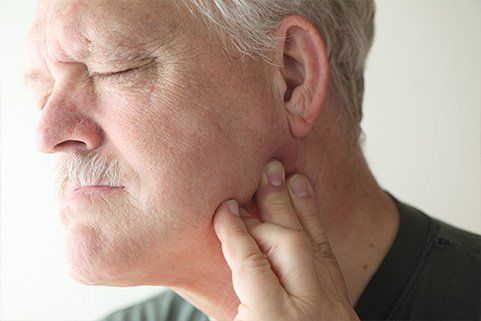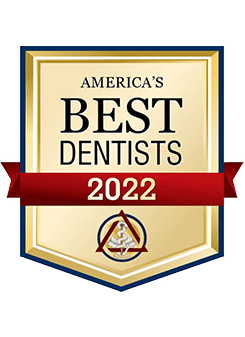TMJ/TMD
What are the TMJ and TMD?
The jaw joint is also called the temporomandibular (TMJ) joint. It plays an important role in the ability to talk, chew, and perform other daily tasks that involve the mouth. TMJ problems, like those associated with temporomandibular disorder (TMD), can cause a variety of symptoms, including neck pain, facial pain, and sinus discomfort. TMJ issues can be indicated by clicking or grating noises in the joint. Jaw-locking episodes are also indicators.
TMJ and TMD, both commonly used in dental and oral healthcare, are terms that often overlap but represent distinct aspects of temporomandibular disorders. The TMJ is the jaw joint that allows for movements such as chewing, talking, and facial expressions. On the other hand, Temporomandibular Joint Disorder (TMD) is a more comprehensive term that includes the TMJ and surrounding muscles, nerves, and other structures.
It's important to understand that the TMJ is the joint between the mandible (lower jaw) and the temporal bone in the skull. The smooth operation of this joint is essential for the basic movements of the jaw and oral function.
TMJ and TMD Disorders
TMJ disorders can significantly impact daily activities, such as chewing or speaking. Our team works closely with patients to tailor treatment plans that address their symptoms and concerns.
We aim to relieve TMJ-related pain and discomfort through personalized therapy sessions, as well as ongoing support.
TMJ/TMD can be a multi-factorial disorder, with many causes. A single factor is not enough to explain the condition. A dental professional must diagnose each case correctly to identify the contributing factors and develop a treatment plan.
TMD and TMJ are Caused By a Variety of Factors
- Injury or Trauma: Direct impact on the jaw or face from an accident, sports injury, or fall can cause TMJ/TMD. Trauma may cause misalignment or muscle strain of the jaw joints and damage to joint structures.
- Bruxism: Teeth grinding and clenching can exert excessive pressure on the TMJ. This may occur during sleep or as a result of stress or anxiety. This can lead to TMJ/TMD-related symptoms such as jaw pain, muscle tension, and joint inflammation.
- Arthritis: Certain types, including osteoarthritis, rheumatoid, and other forms of arthritis can affect the temporomandibular joints. Arthritis can cause joint inflammation, cartilage degradation, and stiffness. This leads to TMJ/TMD-related symptoms such as pain, restricted jaw movements, and joint popping or clicking.
- Misaligned Bite: A malocclusion is an improper alignment of teeth and jaws. This can strain the TMJ when chewing or biting, which can lead to TMJ/TMD-related symptoms, such as jaw pain, difficulty chewing, and jaw locking or clicking.
- Muscle Tension and Stress: Anxiety, stress, and tension can manifest in physical manifestations such as jaw clenching and muscle tightness. Chronic muscle tension can worsen TMJ/TMD and jaw pain.
- Poor Posture: Incorrect posture, particularly when sleeping or sitting, can misalign the spine. Poor posture habits may lead to muscle imbalances and strain on the TMJ. They can also cause TMJ/TMD symptoms like neck pain, headaches, and jaw discomfort.
- Dental Issues: Problems with dental health such as tooth loss, misalignment of teeth, improperly fitted dental restorations (e.g., crowns, bridges), or oral infection indirectly impact the TMJ. TMJ/TMD can be caused by dental problems that alter the jaw function and bite mechanics.
- Hormonal and Genetic Factors: In certain cases, hormonal changes or genetic predispositions (e.g., during puberty or pregnancy) can influence the development of TMJ/TMD. These factors may affect the growth and development of the jaw, joint stability, and muscle function.
Treating TMJ Issues at Sewell
Our team at Sewell Dental Designs is committed to treating TMJ issues without surgery when possible. While oral surgeons are involved in more severe cases to restore jaw function and relieve pain, it is best to explore less invasive TMJ treatment options first. Our TMJ treatment includes therapies that reduce muscle tension, relieve headaches and earaches caused by TMJ problems, and improve overall jaw mobility.
We combine our TMJ expertise with advanced TMJ therapy to treat TMJ/TMD effectively and comprehensively. Contact us if you are experiencing TMJ symptoms or are concerned about the health of your jaw joints. Our team will provide you with compassionate care and address any TMJ concerns. We can also help you achieve optimal dental health and comfort.
Sewell Dental Designs' comprehensive TMJ/TMD treatment approach includes a thorough diagnosis, personalized treatment plans, and patient educational materials. TMJ/TMD can be treated with conservative measures such as lifestyle changes, stress management techniques (such as a nightguard for bruxism), oral appliances (such as a nightguard for bruxism), and medications for pain relief and swelling. If conservative measures are insufficient to treat more severe cases, such as when conservative treatments fail, other options may be considered, including orthodontic adjustments, dental restorations, or referrals to specialists, like oral surgeons and orofacial pain experts.
We provide comprehensive TMJ/TMD treatment to our patients in order to relieve symptoms, improve the jaw function and enhance their overall health and well-being. We encourage you to contact us if you are experiencing TMJ/TMD symptoms or have concerns regarding jaw functionality or discomfort. We can create a treatment plan that is tailored to your needs to restore function and comfort to your jaw.




